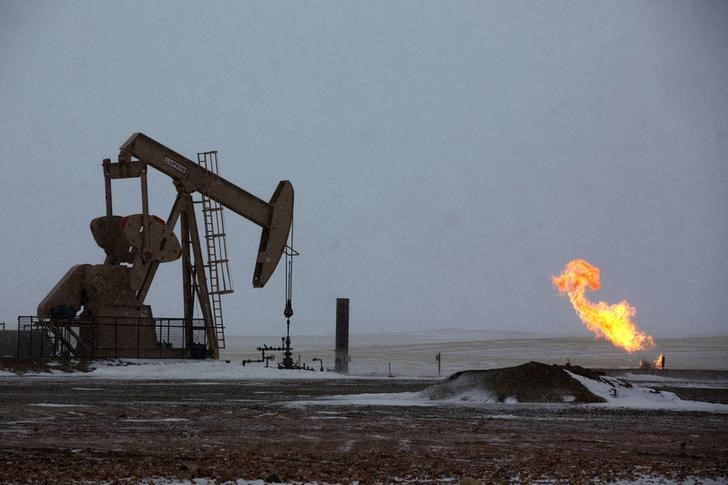Investing.com - Oil prices took a dip on Friday in Asia despite reports of OPEC output cuts and U.S. sanction on Venezuela, as traders are still worried about the global economic slowdown.
The U.S. Crude Oil WTI Futures that dropped by around 2.5% in the previous session kept the downward trend on Friday and were trading at $52.21 per barrel at 11:11 PM EST (4:11 AM GMT), down 0.82%.
International Brent Oil Futures were down 0.67%, at $61.22 per barrel after falling 1.7% in the previous session.
Dampening the market is the possible negative impact of the unresolved disputes between China and the U.S. on the global economic growth prospect.
U.S. President Donald Trump said that there would be no talks between him and Chinese President Xi Jinping before the trade deal deadline on March 1, raising new concerns about the trade tensions between the world’s two biggest economies. Last week, Trump suggested that he would have a face-to-face with Xi in late February but ruled out such a meeting on Thursday.
“Crude prices returned to the lows of the week as slower growth prospects...could signal a return (of reasons) for inventories to rise,” said Edward Moya, market analyst at futures brokerage Oanda, in a Reuters report.
Meanwhile, the supply cuts led by the Organization of the Petroleum Exporting Countries (OPEC) that were introduced last year were continued to be cited as a tailwind for oil prices, although it was largely overshadowed by the renewed trade concerns this week.
Saudi Arabia, the de-facto leader of OPEC, cut its crude output in January by about 400,000 barrels per day (bpd) to 10.24 million bpd - almost 1.7 million bpd below that of the U.S., Reuters reported according to OPEC sources.
The U.S. sanctions implemented in late January have made it harder for Venezuela to export oil, but the impact on international oil markets is still limited at the moment, with some analysts saying oil markets currently "sit on a comfortable cushion of supply."
On Thursday, a U.S. House of Representatives committee approved a bill that would expose OPEC members to U.S. antitrust lawsuits, but the measure is yet to be considered by the full chamber.
